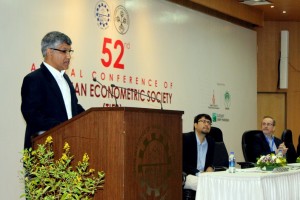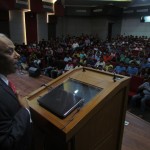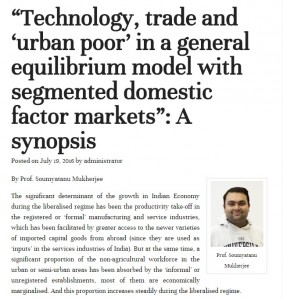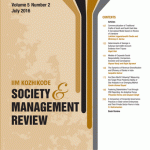Seminar On “Co-creation as gamified sweatshops: Do consumers perceive co-creation as unfair and exploitative?”
By: Prof. Praveen Sugathan, Assistant Professor, IIM Kozhikode.
Abstract Of the Talk:
“Enlisting unpaid workers to co-produce the products and services, which are converted to money in the market often by selling to the same people whose labor helped to produce them, corresponds to the expropriation of surplus value from consumer labor. From a Marxian perspective, therefore, co-creation also signifies the exploitation of consumers even if co-productive activities are engaged in voluntarily and, at times, with a significant degree of enjoyment” (Zwick, Bonsu, & Darmody, 2008, p. 179).
Co-creation has emerged as an important concept in management. Academic research in the areas of innovation, marketing, operations, public policy, and corporate social responsibility is engaging with important questions regarding co-creation (Atakan, Bagozzi, & Yoon, 2014; Galvagno & Dalli, 2014; Kull & Heath, 2016; Voorberg, Bekkers, & Tummers, 2015). Co-creation involves active participation of the customers in various stages of the production and use process using their operant resources of skill, effort, and knowledge (Prahalad & Ramaswamy, 2004; Vargo & Lusch, 2004). Enabled by technology, increasing customer willingness to participate in co-creation, and a competitive push to firms to transfer power to customers, firms are increasingly adopting co-creation. Firms are trying to be more efficient by allowing customers and other stakeholders to take over some of the activities in the value chain and differentiate (Cova & Dalli, 2009; Prahalad & Ramaswamy, 2004; Vargo & Lusch, 2004; Voorberg et al., 2015).
Cova and Dalli 2009) indicate that while companies capture this value in several ways, not much of this value is returned back to consumers. In fact, on one hand consumer spend their time and effort and on the other, they end up paying a higher price for co-created products in the name of personalization and customization. This has been termed as double exploitation (Cova & Dalli, 2009; Zwick et al., 2008). Such charges against firms are not very uncommon, and in fact, firms extending non-monetary incentives and ‘gamifications’ as a motivation tool is embroiled in moral debates (Kim, 2016). The key arguments in support of double exploitation in co-creation is the following; First, consumers are generally not paid for the work and resulting value they impart to products and services. Second, consumers typically pay a price premium for the co-created products that is the fruits of their labor.
As customer apply their resource to co-create, like the firm customers also experience a cost. Money being the medium of exchange between both firms as well as customers, customers form perception regarding the transaction in terms of costs and prices. According to Dual Entitlement theory, customers believe that firms are entitled to fair profit and customers are entitled to fair price (Kahneman, Knetsch, & Thaler, 1986). However these perceptions of fair profit and fair price would be commensurate to the costs or the resources used by each parties in the transaction. Therefore, we look in to co-creation using theories regarding price and cost to understand the nature of ethical question about possible consumer exploitation and fairness concerns that co-creation poses. We specifically answer the research questions of: How customer perceive about the fairness of the prices when they co-create? How the salience of a particular firm level cost type influences their perception of price fairness.















 Users Today : 89
Users Today : 89 Users Yesterday : 268
Users Yesterday : 268 This Month : 2967
This Month : 2967 This Year : 55936
This Year : 55936 Total Users : 479924
Total Users : 479924 Who's Online : 1
Who's Online : 1